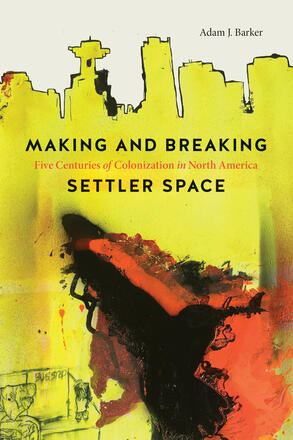
Making and Breaking Settler Space
Five Centuries of Colonization in North America
Description
Five hundred years. A vast geography. Making and Breaking Settler Space explores how settler spaces have developed and diversified from contact to the present. Adam Barker traces the trajectory of settler colonialism, drawing out details of its operation that are embedded not only in imperialism but also in contemporary contexts that include problematic activist practices by would-be settler allies. Unflinchingly engaging with the systemic weaknesses of this process, he proposes an innovative, unified spatial theory of settler colonization in Canada and the United States that offers a framework within which settlers can pursue decolonial actions in solidarity with Indigenous communities.
Reviews
Barker’s work presents a strong synthesis of recent work in settler studies. It testifies to his comprehensive understanding, as a self-acknowledged settler, of the dynamics that have presided over the construction of ongoing and structural North American inequities between settler and indigenous peoples.
- S. Perreault, Red Deer Polytechnic
Making and Breaking Settler Space offers important points of conversation and contestation as we continue to figure out what it means to live together in this place, and how we should go about doing something about it.
- Coll Thrush